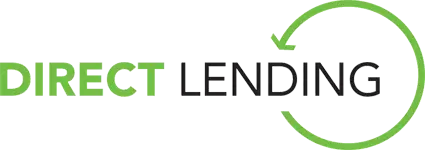
Upfront and Closing Costs of a Reverse Mortgage
During the origination process, there are multiple costs borrowers need to cover in order to finalize their loan. Loan proceeds can cover some, but not all of these costs and fees.
Reverse Mortgage Counseling Fee ($125 – $200)
To ensure reverse mortgage borrowers understand the terms of their mortgage, the United States Housing of Urban Development (HUD) requires them to attend a reverse mortgage counseling session. A third-party counselor conducts the session, which costs approximately $125 to $200. Loan proceeds cannot cover this fee—the borrower must pay it out of pocket. Find a participating counselor near you on the HUD website.
Home Appraisal ($300 – $500)
Home equity conversion mortgage (HECM) loans usually require an appraisal. The cost depends on the size, age, location, and condition of your home. The borrower pays the appraisal management company directly. In some cases, HUD requires a second appraisal. This requirement is at HUD’s discretion, not the lender’s.
Loan Origination Fee (Max $6,000)
Loan origination fees are costs associated with the lender processing your loan. Borrowers should expect to pay $2,500 or 2% of the first $200,000 of the home’s appraised value, whichever amount is greater, plus 1% of the amount the loan exceeds $200,000. The cap for this fee is $6,000, and you can cover it with loan proceeds. In some cases, a borrower may negotiate a higher interest rate in exchange for lower fees like origination fees or access to lender credits.
Mortgage Insurance Premium
Reverse mortgage borrowers will pay an initial mortgage insurance premium at closing that will be 2% of the maximum lending limit of $1,089,300 or the home’s appraised value, whichever is less. Loan proceeds typically cover this fee. The mortgage insurance premium covers reverse mortgage insurance. This coverage is required for HECMs and protects both borrowers and lenders. It also ensures that if the borrower has a line of credit, the lender cannot cancel or freeze the loan proceeds due to market conditions.
Common Costs Associated With Closing
Multiple fees are commonly associated with the closing process for any mortgage. Borrowers should expect to pay several one-time reverse mortgage fees. Most often these fees are paid with loan proceeds, but the borrower always has the option of paying them with cash at closing if they prefer. In addition to the fees listed below, borrowers should also expect to pay third parties for various services including title searches, notarization, and tax certifications.
-
Credit Report ($20-$50). The lender will pull the borrower’s credit report and charge the borrower for the cost to obtain the report.
-
Flood Certification (typically $20). A flood certification fee confirms whether this particular property will face flood concerns. This certification is required of all homes, not only those in flood prone areas.
-
Document Preparation (under $200). Documents need to be photocopied and professionally prepared.
-
Closing Fee ($200+). An escrow fee ensures that the exchange for title and fees occurs correctly and to make certain property issues don’t come up during the transaction.
-
Courier (approx. $50). During the process of the loan, there may be times when a courier is required to hand-deliver documents from one place to another.
-
Survey (up to $250). If there is a dispute regarding property lines, or the title company requires it to clear any title exceptions, a surveyor will walk through the property to determine if the boundaries are clear. The surveyor’s visual walk will be compared to maps.
-
Recording Fee (cost varies). Government offices will charge their own title fees to make a change in the records. The cost will vary depending on the jurisdiction.
-
Pest Inspection ($100+). This is not required for reverse mortgages, but in some cases, to make certain the property is free and clear of insects, a pest inspection may be required by the appraiser. The pest company sets the rate for the inspection.
-
Title Insurance (varies). Title insurance is required since the lender wants to make certain they are protected against any potential title disputes. Title insurance costs will vary depending on factors such as the home value, loan amount, and location.
Ongoing Fees Associated With a Reverse Mortgage
After the reverse mortgage has been funded, there are some ongoing fees that borrowers must pay to stay in good standing with their lender.
Annual Mortgage Insurance Premiums
As part of their loan terms, HECM borrowers maintain mortgage insurance for the life of their reverse mortgage. The annual MIP (Mortgage Insurance Premium) is 0.5% of the outstanding loan balance.
Loan Servicing Fees
The lender may charge a loan servicing fee to maintain the administrative cost of the reverse mortgage. This can be a monthly charge of up to $35. Not all reverse mortgages have a servicing fee.
This article is intended for general informational and educational purposes only, and should not be construed as financial or tax advice. For more information about whether a reverse mortgage may be right for you, you should consult an independent financial advisor. For tax advice, please consult a tax professional.

